By now, we’re all reading from the same script. We know “the whats” required for America to win.
We must lead in AI, secure the energy system that powers it, rebuild our ability to manufacture, and control the rare earths and upstream infrastructure that make all of this possible. The list is clear.
What remains largely unarticulated, though, is “the how” — how we as a nation must move if we do, in fact, intend to win.
At the Trusted Tech Summit 2025 — one of the few places left that treats “America First” not as us going at it alone, but as us captaining Team Free World — Krach Institute for Tech Diplomacy at Purdue CEO Michelle Giuda went directly into “the how.” As she stated it, the operating condition for America to win the next century is that we move like an elite team. In her words, “As Americans, we are already a part of an elite program… but the team can’t afford anymore for any of us to just be happy to be here.”
She pointed to our WWII history — an era Arthur Herman chronicles in Freedom’s Forge (mandatory reading for the PA community!) — when ordinary American workers and industrial leaders recognized that “being happy to be here” couldn’t win the war. The industrial base mobilized at full tilt: factories ran without pause, machines were pushed past their limits, and daily production carried real physical risk. The casualty stats underscore their commitment to victory: in 1942, American industrial workers suffered roughly twenty times as many casualties on the job as U.S. troops did that year, with 189 GM executives even dying on the job. This was an American working class that accepted the same proximity to consequence as those on the front lines.
Now, as Michelle Giuda noted, we’re no longer in the same kind of war, but the stakes for our country’s next century will always be high. And we need to move as an elite team that gets to V-Day, over and over again.
Trusted Tech Summit 2025 gathered the leaders with the greatest influence — and the greatest exposure — over the free world’s trajectory: Sweden, Italy, Japan, Australia, the United Kingdom, and companies such as OpenAI, Anthropic, and Ericsson. What follows are the key takeaways from their discussions on what an elite team must look like in 2025.
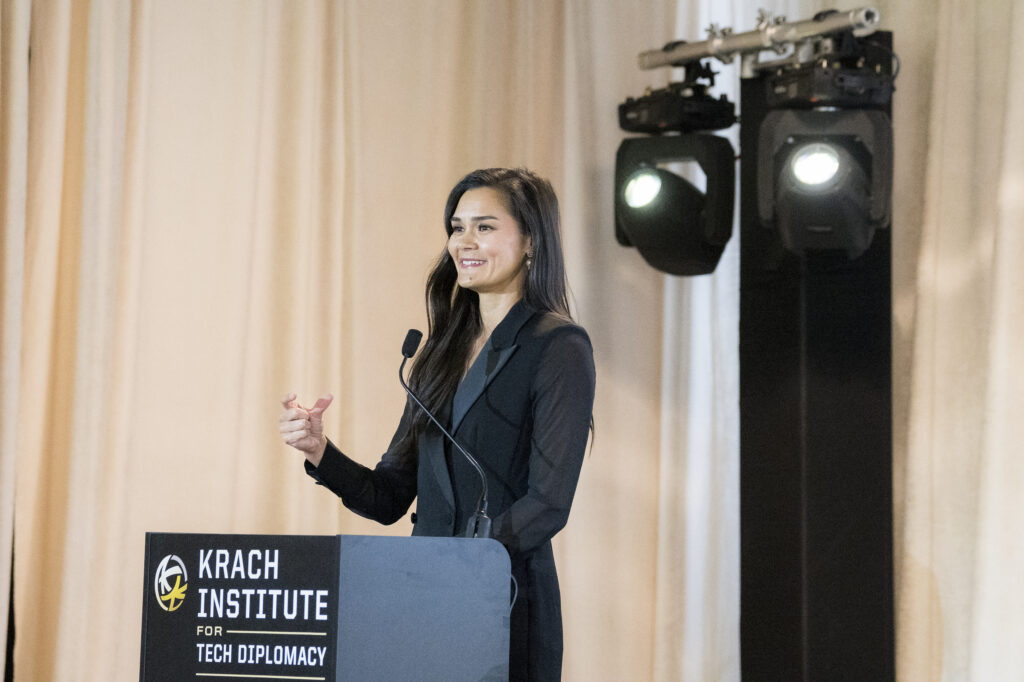
Michelle Giuda
Michelle Giuda serves as CEO of the Krach Institute for Tech Diplomacy at Purdue. Prior to joining KITDP, she was the U.S. Assistant Secretary of State for Global Public Affairs and previously held senior global communications roles in the private sector, including as an executive at Weber Shandwick. In college, she captained UCLA’s NCAA championship gymnastics team.
Michelle’s top quotes
“The only way we will save America and the free world is if we perform together as an elite team.”
“Even the greatest of all time have to relentlessly get better. Michael Phelps had to swim two and a half seconds faster in Rio than in Athens just to win gold in the same race.”
“It’s going to be really hard. It’s going to require a lot of speed, a lot of creativity, a lot of breaking things to create a whole new system for freedom and security and prosperity in the world. But an elite team like ours says, bring it on — time to go into championship mode.”
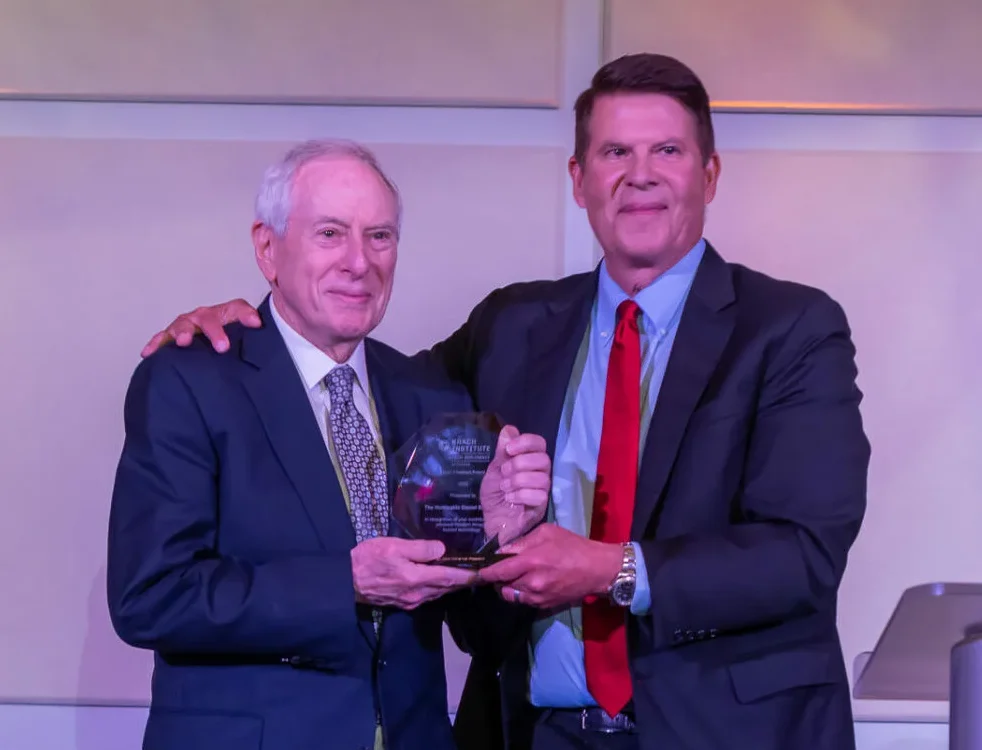
P.S. Your very own Dan Goldin of Per Aspera serves on the Advisory Council of the Krach Institute for Tech Diplomacy at Purdue and was the recipient of the Tech Freedom Award in 2022.
Check out his acceptance speech here.
Key Takeaways
What does an elite team in 2025 look like?
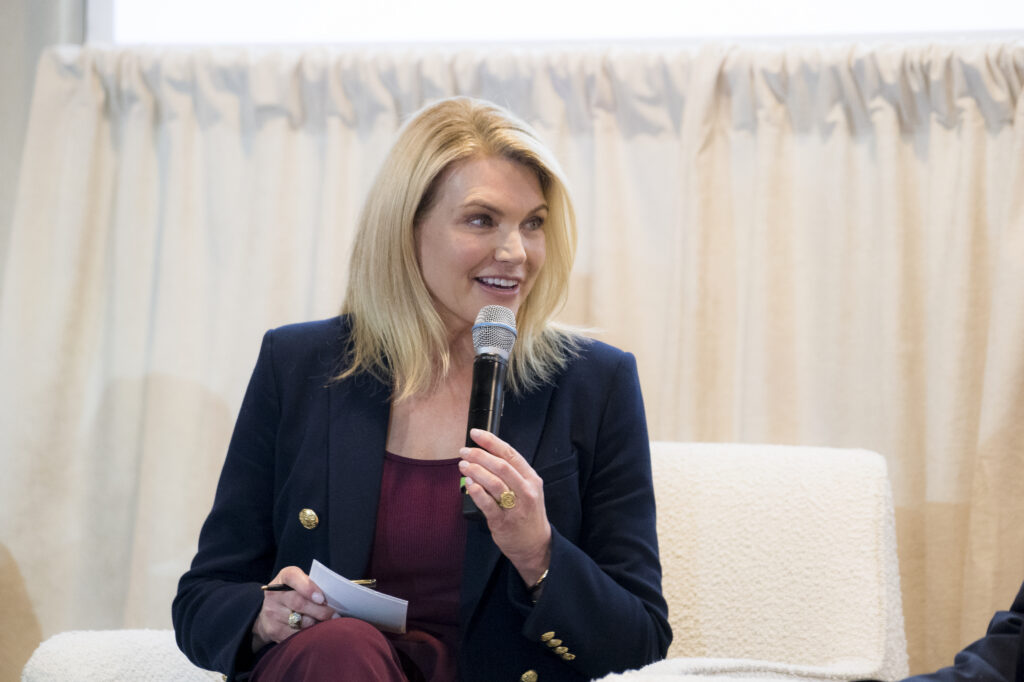
Speed. A recurring theme was speed. During the Artificial Intelligence Meets Real Diplomacy panel, moderator Heather Nauert asked Ron Ash, CEO of Accenture Federal Services, what barriers federal customers raise most often. He answered: “What I’m hearing most is, how can we go faster?” That focus on pace carried through the rest of the discussion. Aaron Slodov, CEO of Atomic Industries, observed that “China’s application of AI is more front-running.” As he put it, “This is a decisive race… the faster we move, we have to put in more reps.”
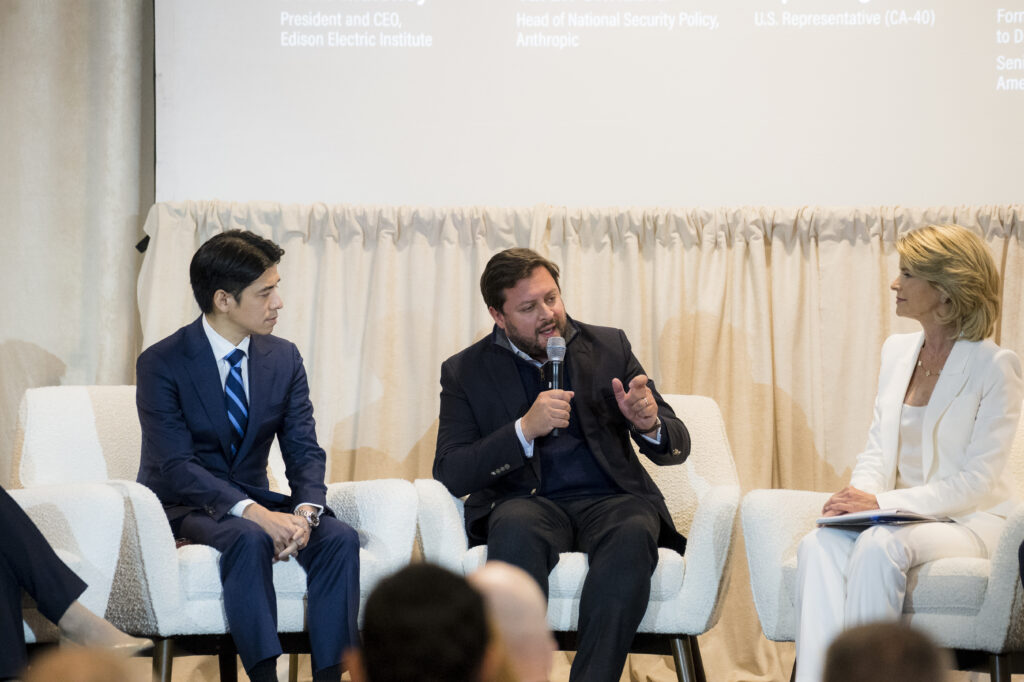
Anthropic
Coordination. Another point that surfaced was the need for real coordination — inside the U.S. and across its allies. During Artificial Intelligence Meets Real Diplomacy, James Roscoe, Chargé d’Affaires at the British Embassy, described the gap he sees in allied technology alignment: he was “concerned to see a set of technologies that existed for partners and allies over here, and instead U.S. technologies over here… clearly, the future is a future of interoperability.” Ron Ash added the competitive contrast, noting that America’s adversaries “are working as one unit,” while the U.S. often behaves like “hundreds of different units.”
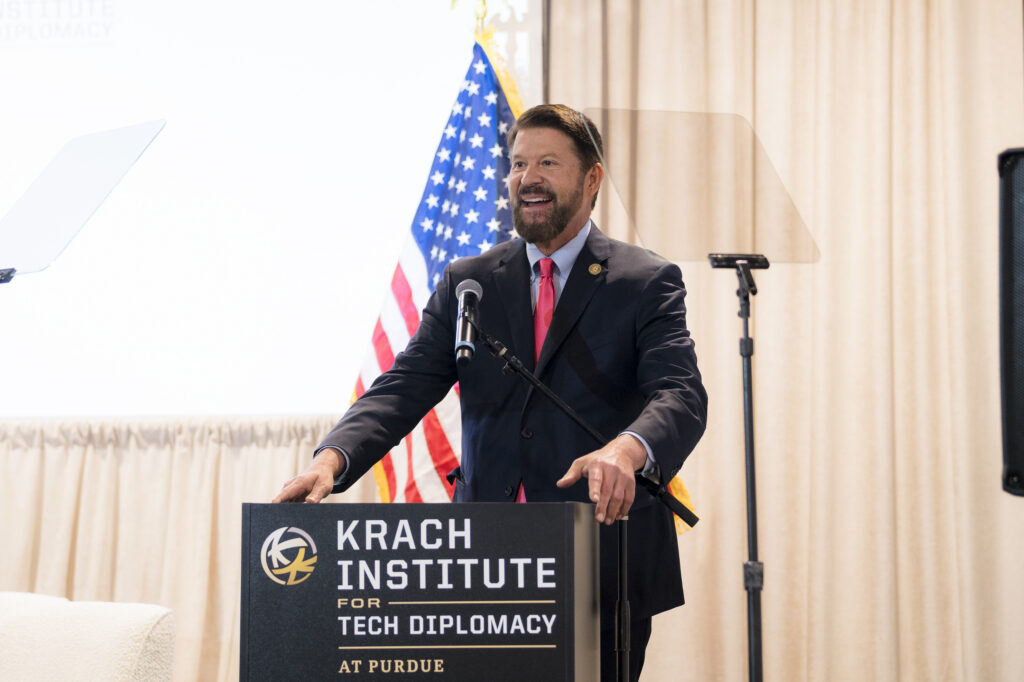
Trust. Finally, trust — the central point of the Summit. In his remarks, Keith Krach, Chairman and Co-Founder of the Krach Institute for Tech Diplomacy at Purdue, spoke from the principle he learned building as an executive and founder in Silicon Valley: “the greatest force multiplier in the history of the world is a trusted network.” That insight has now shaped the KITDP Global Trusted Tech Network, which he unveiled — a network of networks designed to unite countries, companies, universities, and civic institutions around one mission: ensuring that technology advances freedom.
2025 Trusted Tech Leadership Award Honorees
At the Summit, the Krach Institute for Tech Diplomacy at Purdue recognized companies — and one allied government — whose work sits directly on the critical path of the free world’s advantage. Michelle Giuda described them as organizations “walking the walk when it comes to being elite,” each responsible for a different layer of what Keith Krach called “the backbone of freedom in a tech-driven age.” Together, they map to the architecture of KITDP’s Trusted Tech Stack — the set of technologies and allied standards that determine whether the free world can build, secure, and scale its system of trust at global level.
More from KIDTP
If you want to take part in KITDP’s work to strengthen the allied tech base, start here:
- Recap on the Trusted Tech Summit 2025
- Learn more about their Global Trusted Tech Network
- Join their Tech Diplomacy Academy
- Learn more about: Tech Diplomacy Academy × LinkedIn Learning Partnership
